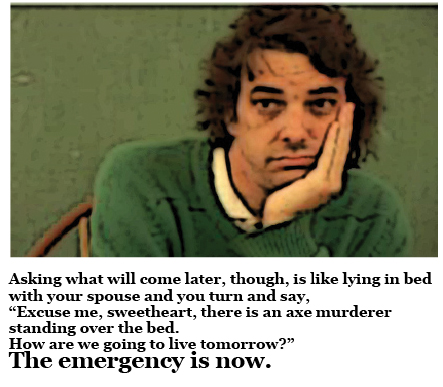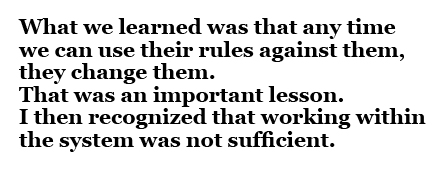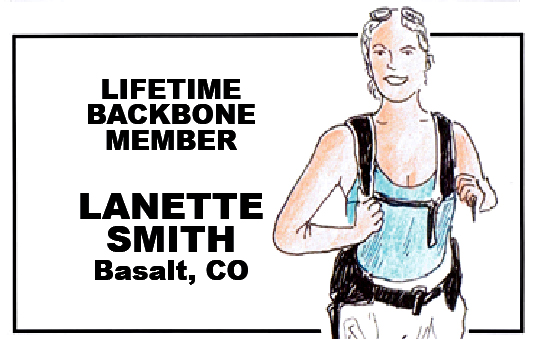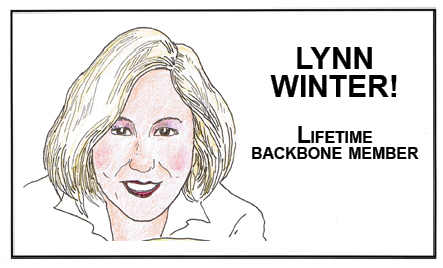I lean against the railing atop a high rise, just enough to get butterflies, and settle my gaze on the Pacific Ocean. The city of Seattle is waking up. From above, the sputtering trucks look like slow moving flat birds circling their prey. Mechanical claws find and empty dumpsters with last night’s soup du jour, boot scuffed newspapers, things for the “away.” Those that never found sleep pass those that wake early to witness or coax the first grumbles of the day. Everything I now own is in a backpack at my side. I give my eyes to the ocean before turning to leave.
A plane ride later, I am in southern Utah, with a group of all walks and ages, heading into the canyons. Everything we need is on our backs. We do not return for two months.
Not knowing what or where it would happen; we stumbled into an equinox, love for flesh and dirt, darkness of legend and it’s counterpart in light – and one day walking, we discovered hieroglyphs on rock, safe from a modern showcase. The people of the Anasazi marked their stories in symbols of birds and figures, as pieces to fit with left behind pottery, war towers and bones. We dreamt that night at White Rock, an ancient burial ground – of cycles, of death, of morphing masks, spiders and on more than one occasion, heard footsteps that stopped close to our heads and never left.
There is, all around us, this land of primary fire.
Have you noticed?
Full of vigor, I left Utah and returned, sun slathered, bright eyed and determined – to the supermarkets of my childhood suburbia in Washington State. Desperate to reconcile these realities, I called on a friend to drive the Pacific coast and speak my mind. He listened with patience then threw “A Language Older Than Words” by Derrick Jensen on my lap. It became the book that gave me greater context for my shock and my cultural queries after returning from the woods.
In the three years since backpacking through Utah, I have moved to Colorado and now study and work with issues related to environmental justice. I have been exposed further to Jensen’s work in the world of academia and have stayed curious about what his critique means to the community I work within.
Where so many millions of bugs, foxes, bears, humans and powerful beasts have lain down on the earth and died, it will be hard to tell, what once was bone, from the scraps of modern man. What does the awesome task of reconciling our minds, hearts and souls with what humans have built mean for those of us still in love?
Below are questions from a conversation I had with Derrick Jensen this September.
Cayte Bosler: What are the differences with the current impending collapse scenario and historical collapses?
Derrick Jensen: The Mayan civilization, for example, still had land to retreat to. Somewhere else for people to go. They still had the basic skills to be able to feed themselves and survive. Now a small percentage of humans could feed themselves. How many people dropped into the forest could find food? I couldn’t. How many people know when the next new moon is or their local geography? Also, a difference is that we have overshot our population more than before. We’ve become increasingly dependent on an abstract society. This crash will be far more severe.
CB: How should humans live post-collapse?
DJ: What I believe will happen is as the oil economy collapses, those in power will attempt to maintain power by forced human labor to substitute for oil loss. We will see slave camps. What I want is thousands of different cultures living in different, unique ways in different places. You wouldn’t live the same way in the Olympic rainforest of Washington as you in the desert of Utah. I want different ways of being. 10,000 different cultures in different places. Asking what will come later, though, is like lying in bed with your spouse and you turn and say, “Excuse me, sweetheart, there is an axe murderer standing over the bed. How are we going to live tomorrow?” The emergency is now.
CB: Why aren’t we seeing the environmental crisis be declared a national emergency? Can you speak to the collective denial?
DJ: The stock market is down 144 points today. That’s really important. Yahoo news, let’s see, trending now – Jessica Alba…long time lifeguard sues over skimpy swimsuit rules…My point is that people have come to believe this culture is more important than life. Even Bill Mckibben says he is attempting to save civilization and not the planet. On a deeper level, R.D. Laing’s rules for a dysfunctional culture are:
A) Don’t.
Rule A.1) Rule A does not exist.
Rule A.2) Never discuss the existence or nonexistence of Rules A, A.1, or A.2.
What this means is that we can’t talk about corporate control of the planet, but we can talk about … oh, hang on I got to check the sports. More people are interested in the Detroit Tigers than real tigers. Upton Sinclair said, “It’s hard to make a man understand something when his job depends on not understanding it.” The same thing is true for entitlement. The problems we face are not cognitively challenging. Any way of life that is based on destroying the landbase is not going to last. Based on non-renewable resources. Duh. Denial pervades everything. The problems we face are not fundamentally rational, and therefore are not amenable to rational solution. It is not reasonable or rational to destroy the planet you live on.
CB: A question that often comes up often is whether to work within the system of government and law or not?
DJ: We need people working within and outside. Within is necessary but not sufficient. The court system is rigged against environmental lawyers. We need to take down the entire system. We need offensive and defensive work.
CB: How did you come to that conclusion?
DJ: Lots of environmentalists begin by wanting to protect a specific piece of land. They don’t question the foundation of western civilization. And then you ask – why does this culture destroy land in the first place? With some other people I worked to save old growth forest. We showed that the timber sales were violating the clean air act. Then the company got congress to pass the 1995 salvage rider bill. Timber sales violating clean air acts, etc. We saved old growth, and the timber industry got congress to pass the Salvage Rider, which made it so that we couldn’t do appeals anymore. What we learned was that any time we can use their rules against them, they change them. That was an important lesson. I then recognized that working within the system was not sufficient.
CB: What questions are you grappling with at this point in your work?
DJ: Twenty books later, I still can’t completely believe that this culture is as insane and destructive as it clearly is. I don’t understand why people can’t see this or think it’s okay to kill the planet. There are stolid scientists saying that within 50 years the oceans will be devoid of fish. I’ve devoted my entire adult life to understanding how insane it is and I still don’t have any clue how insane it is. There is the bright green movement. Take wind energy, for example. Where do you get the copper for the wiring? If you have a city then where do you get the food and building materials? They don’t take the fundamentals into account. William Mcdonough does things like putting native plants on top of a truck factory and calls it “green architecture.” You can put native grasses on the path of a death camp. It doesn’t make it just.
CB: What brings you solace?
DJ: A marine preserve between Baja and the tail end of Mexico excluded all commercial extraction, and fifteen years later all the fish have come back. It’s so beautiful to see the fish just swimming there, living their lives. Life wants to live. If we can stop this culture from killing it, then it will recover. That brings me solace. Another thing that helps me keep going is that I don’t have anyone in my life I have to revisit Civilization-Is-Bad-101 with. I don’t have to refight battles everyday. All my friends understand how horrible this culture is.
CB: If you could take a walk with two people from history who would they be?
DJ: Do I get to pick Christopher Columbus and walk along the edge of a cliff and push him off?
CB: No, this isn’t an assassination in a time capsule.
DJ: Tecumseh and Fredrick Douglass.
CB: What are your current musings on what happens when we die?
DJ: Maybe we hang around for a while and then our energy starts to diffuse then enter everybody else…if I were to die out there ants would come or who ever else, possums, vultures and carry me off. Maybe our psyche does the same thing where it kind of hangs around then disperses…like a wave… it comes up on the shore and has its individuality then merges back into the ocean…or maybe we do stay somewhat distinct …and then come back as something else.
Bios:
Derrick Jensen(born December 19, 1960) is an American author and
environmental activist living in Crescent City, California. Jensen has
published several books questioning and critiquing modern civilization
and its values, including A Language Older Than Words, The Culture of
Make Believe, and Endgame. His recent books include Deep Green
Resistance and Dreams. He holds a B.S. in Mineral Engineering Physics
from the Colorado School of Mines and an M.F.A. in Creative Writing
from Eastern Washington University. He has also taught creative
writing at Pelican Bay State Prison and Eastern Washington University.
Cayte Bosler is a student at the University of Colorado and in the
INVST Community Studies and Leadership program. She studies the
Humanities and Japanese. She enjoys traveling, most recently in
Nicaragua, and hopes to one day scour the globe with a backpack and
journal.
To read the PDF version of this article, click HERE
Don’t forget our lifetime Backbone members!







Deep Green Resistance (DGR) is a movement based on the book, co-authored by Derrick Jensen, called Deep Green Resistance: Strategy to Save the Planet. DGR has a plan of action for anyone determined to fight for this planet-and win. This is for those who know the real world and are willing to do what it takes to protect it. It is time to take action.
Zygmunt Bauman says that rational people will go quietly, meekly, joyously into a gas chamber, if only they are allowed to believe it is a bathroom. And Ill say that rational people go quietly, meekly to the end of the world if only you’ll allow them to believe that buying energy saving bulbs is gonna save the day.
The fact is that 98% of the old growth forests are gone. 99% of of the prairies are gone. 80% of the rivers on this planet do not support life anymore. We are out of species, we are out soil, and we are out of time. And what we are being told by most of the environmental movement is that the way to stop all of this is through personal consumer choices. It’s time for a real strategy that can win.
Where is your threshold? To take only one variable out of hundreds: Ninety percent of the large fish in the oceans are already gone. Is it 91 percent? 92? 93? 94? Would you wait till they had killed off 95 percent? 96? 97? 98? 99? How about 100 percent? Would you fight back then?
How about this? If a foreign power were to do to us and our landbases what the dominant culture does – do their damnedest to turn the planet into a lifeless pile of carcinogenic wastes, and kill, incarcerate, or immiserate those who do not collaborate – we would each and every one of us – at least those of us with the slightest courage, dignity, or sense of self-preservation – fight them to the death, ours or far preferably theirs. But we don’t fight. For the most part we don’t even resist.
No more ineffective action – piecemeal, reactive, and sad. Now this war has two sides. Learn how to join the resistance:
deepgreenresistance.org
A great, thought-provoking piece, Cayte. I linked to it at my site, timjnelson.com. Especially enjoyed DJ’s, quote, “I don’t understand why people can’t see this or think it’s okay to kill the planet. There are stolid scientists saying that within 50 years the oceans will be devoid of fish.” Also, the question and answer to finding solace … Personally, I have to fight battles every day with people on this, and it does get tiresome. My latest post is asking people (myself) to wake up to this reality, not pretend it doesn’t exist or happen. When the Profiteer, the Industrialist looks at their own child with asthma or cancer, a horrible thought, and makes the intellectual connections, then maybe they too will join the Green Resistance, end this madness.
[…] Originally published at Zephyr […]